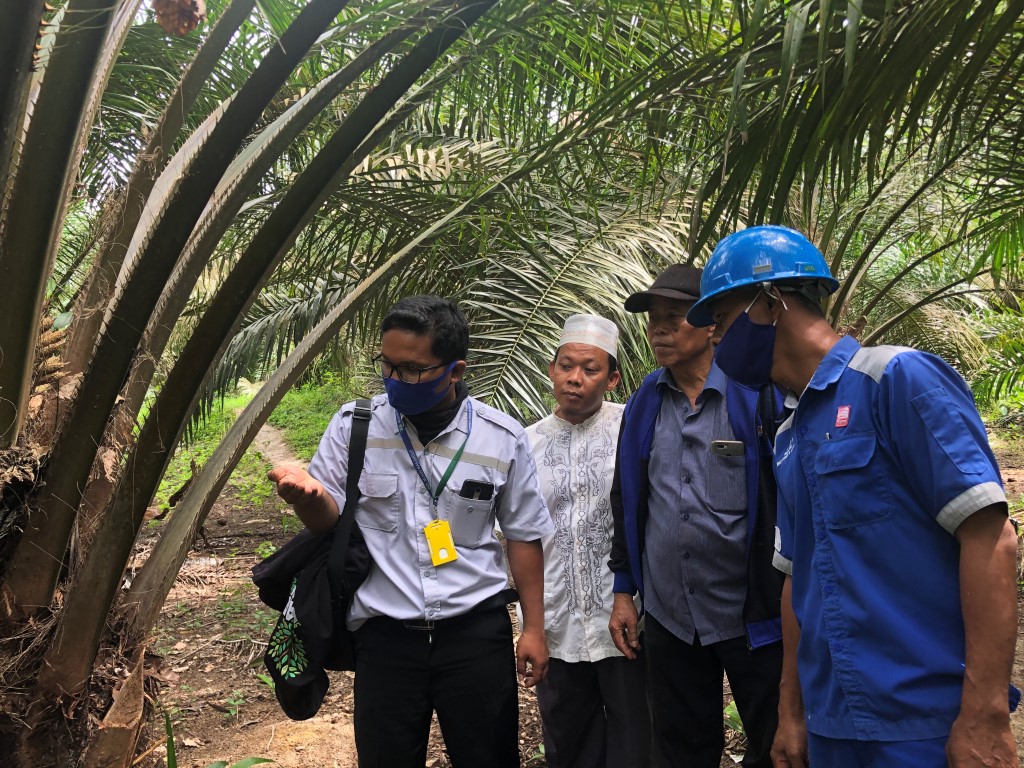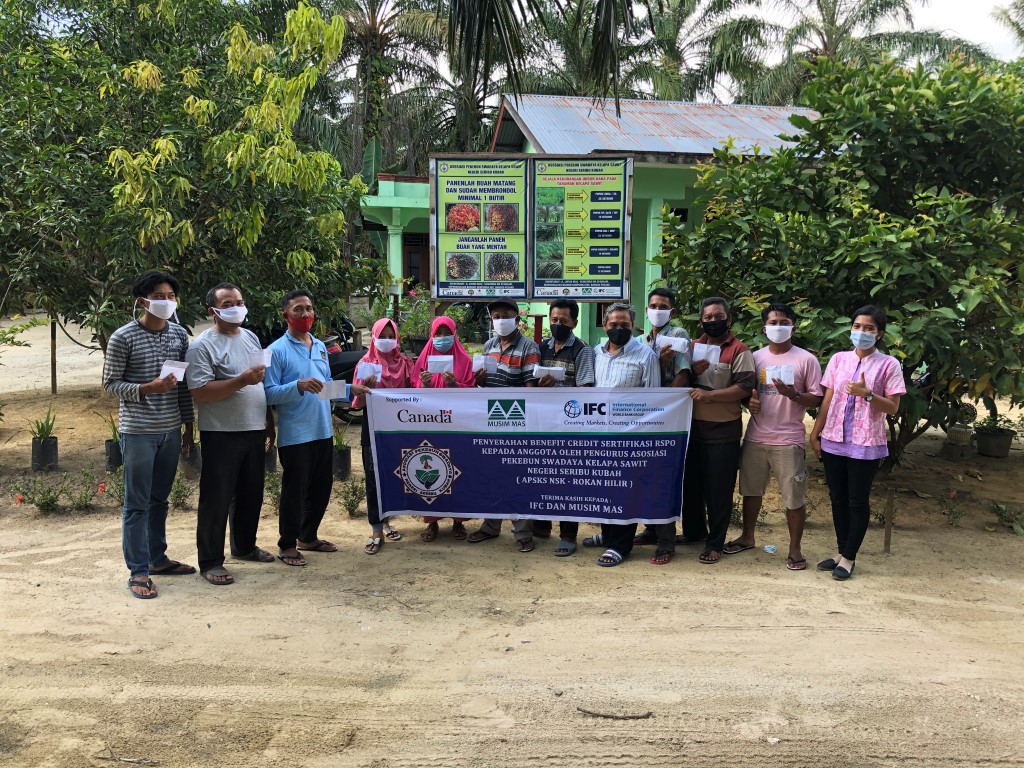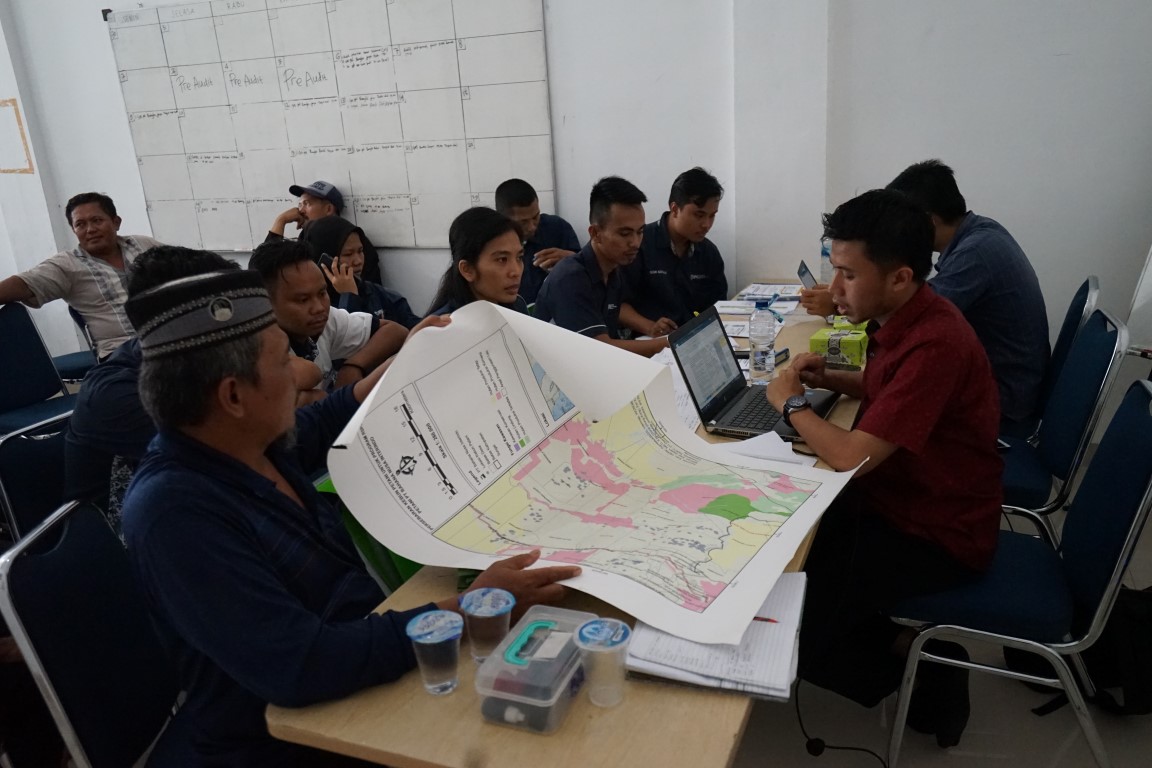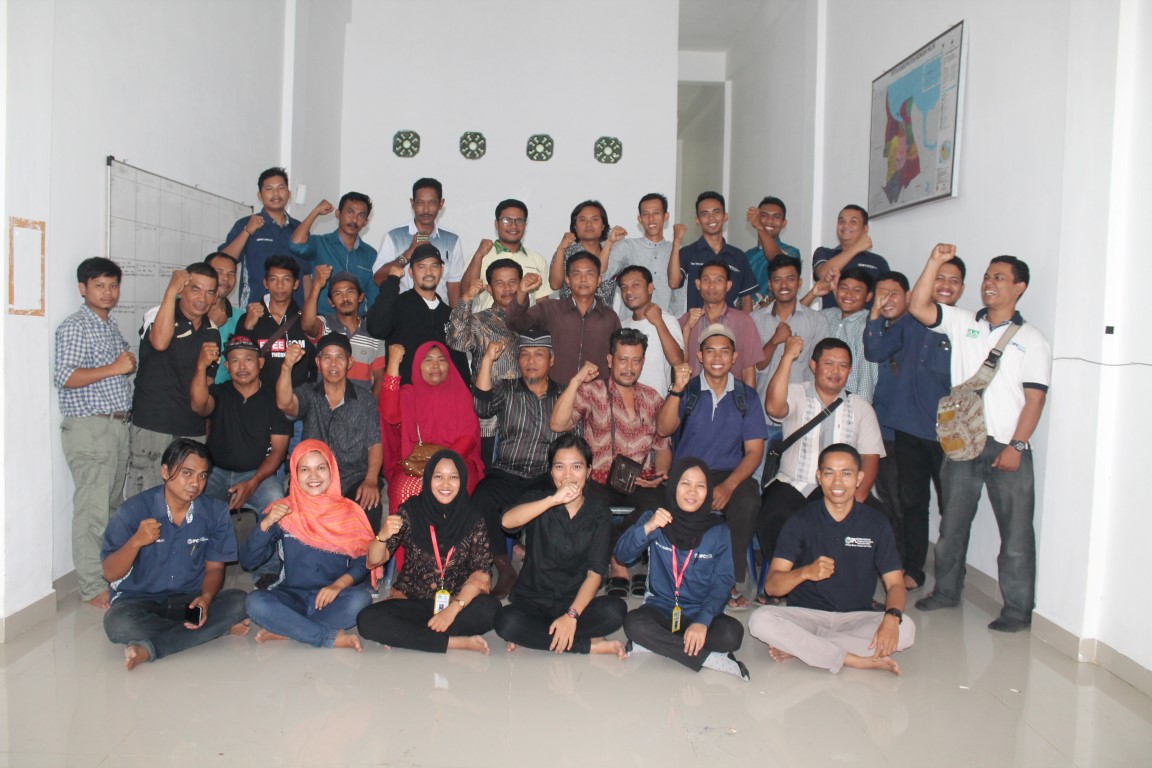
About the group
Number of smallholders: 802 (648 Men, 154 Women)
Total Land Area: 2169.79 Ha
Status: Certified
Group location: Jl. Lintas Riau-Sumatera KM. 16 Bagan Batu, Kepenghuluan Pasir Putih, Bangko Pusako Sub-District, Rokan Hulu District, 28992 Riau Province, Indonesia
Country: Indonesia
On-going Facilitator:
SUSTAINABILITY JOURNEY STORY
Farmers Can Learn Anything, With Some Assistance
Ratnawati, an independent smallholder in the Rokan Hilir district of Riau, was not keen to join the independent smallholders project when she was first approached by the International Finance Corporation (IFC), a member of the World Bank, and Musim Mas in 2016.
A mother of four, she started cultivating oil palm in 2000 and changed her mind after a conversation with her eldest son. With his experience as a field assistant for the IFC-Musim Mas project, he was able to convince her that joining the project would enable her to receive advice with respect to fertilizer usage.
“I thought: ‘Yes, why not?’ The only requirement is to form a group with other farmers in my neighbourhood and agree to attend the training. I have nothing to lose. Anyway, I really wanted to know what fertilizer I needed to use in my farm,” said Ratnawati.
Unlike scheme smallholders who receive training and assistance from nucleus oil palm plantation companies, independent smallholders rarely receive any training or assistance. Instead, independent smallholders generally learn how to plant oil palm from their neighbours, or by trial and error. Reflecting on her journey from being an individual farmer to becoming treasurer of the farmer group association in 2019, Ratnawati shared the collective accomplishments of the group.
“Since its inception, our farmers’ association has made incredible progress. Despite public health restrictions due to the COVID-19 pandemic, we managed to receive our first RSPO certification in 2020. Earlier this year, we received the payment from selling our RSPO credits,” said Ratnawati.
Kateni, the group manager of the association, shared the same sentiments as Ratnawati. “I am incredibly proud that farmers such as ourselves were able to form a farmer group and establish an association that meets RSPO certification requirements.”
In 2018, when IFC and Musim Mas conducted a session on certification and asked independent farmers if they would like to obtain RSPO Certification, Kateni and Ratnawati were among the first to say yes.
The IFC-Musim Mas project team assisted the newly established association with creating their internal control system (ICS). As members of the association are scattered around 11 villages that cover about 144,000 hectares – double the size of Singapore – it created logistical issues for the ICS team who worked to ensure that all members applied the standard operating procedures and recorded all activities properly. Despite all the challenges, in August 2020, the association passed the RSPO audit.
In early 2021, the association received the proceeds from the sale of their RSPO credits. “Due to the importance of applying the correct fertilizer, most farmers used the money to buy fertilizer for their farms,” explained Kateni.
Farmers who joined the IFC-Musim Mas project receive fertilizer recommendations based on the leaf and sample analysis conducted by the field assistants and Musim Mas.
“Today, there are more than 200 new smallholders in our association, which is double the number of members compared to last year,” Kateni says. “As a group manager, it is heart-warming to see the enthusiasm of my fellow farmers. With a growing organisation, it is quite challenging for the ICS team to ensure that these new members are trained, follow the procedures, and record all their activities. Nonetheless, we are up for the challenge.”
So, what motivates him to face this challenge? “Farmers always want to learn new things to improve their livelihoods. As long there is assistance, farmers can learn anything. In the past, I did not know anything about sustainable practices or safety standards. Having learned about these practices, I now apply them regularly. As such, I want other farmers to follow in our footsteps,” Kateni said.
Project Impact
Total area covered by the project
2169.79 Ha
Number of smallholders benefitting from this project
802 Smallholders
Number/percentage of women supported by this project
19.20% women in this project
How you can support
With the organisation in their first year of being certified, they need assistance from third parties to strengthen their capacity in retaining their ISH RSPO certification. Moreover, hundreds more farmers in the area are keen on joining the group. Their efforts will benefit downstream partners such as Consumer Good Manufacturers or retailers.
To that end, please show your support by purchasing RSPO Smallholders Credits. With your help, the organisation will be able to incentivise more farmers in the area to adopt sustainable practices such as applying zero burning and protecting HCV areas.
GROUP CONTACT
Representative Contact
Kateni | Chairman | [email protected] |
Andi Reza Rohadian
Secretary
(+62) 822-8452-7024
[email protected]
IMAGE GALLERY







